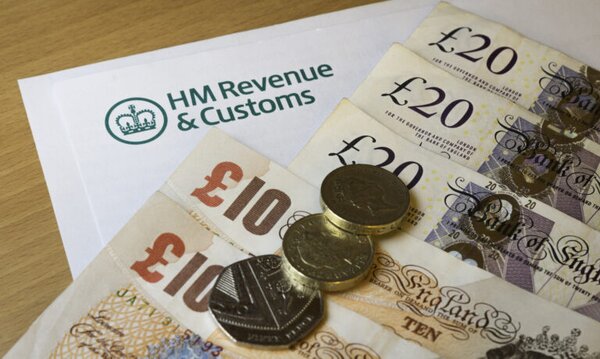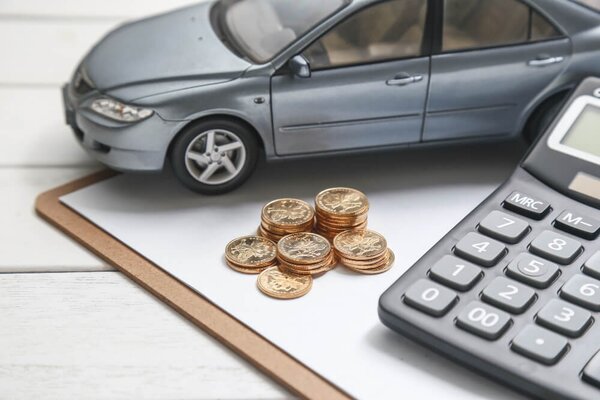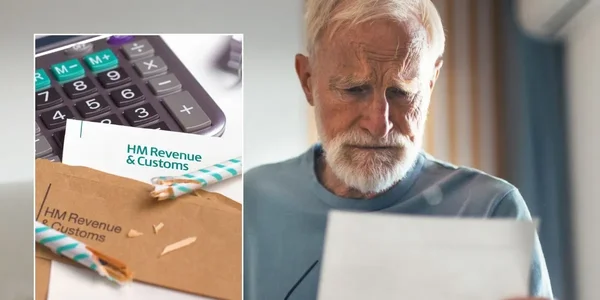Let’s Break This Down Together...
You’ve got a side hustle, but now you're wondering if HMRC needs to know. With new rules in place, earning even a bit on the side could mean registering for tax.
This article explains what the HMRC side hustle crackdown is, which platforms are involved, and what steps you need to take. It covers thresholds, deadlines, penalties and how to stay compliant.
By the end, you’ll know exactly where you stand and how to avoid nasty surprises. Let’s dive in.
Why Is HMRC Targeting Side Hustles?
The pandemic sparked a massive boom in side hustles, with millions of Brits turning to online platforms. HMRC estimates this “hidden economy” costs billions in lost tax revenue.
A significant proportion of the UK population now engages in side hustles, impacting UK households as more people seek ways to supplement their income.
Remote work has become normal and the cost of living continues to rise. Side hustles have evolved from occasional dabbling to significant income streams for many. Additional income requires Brits to register as self-employed and report earnings to HMRC if they exceed the tax-free allowance.
Even those with a main job often pursue side hustles in addition to their core employment, making it essential to understand the tax implications. HMRC’s focus isn’t on catching out small sellers. They aim to ensure everyone pays their fair share as the digital economy grows.
If you’ve started earning extra income, we can help you understand your tax obligations, register with HMRC, and ensure your side hustle stays fully compliant.
What Exactly Is the HMRC Side Hustle Crackdown?
HMRC’s side hustle crackdown is a targeted campaign to identify unreported income. It focuses on earnings through digital platforms and informal work arrangements.
New international data-sharing agreements give HMRC unprecedented visibility. Previously, HMRC requested data from digital platforms on an ad hoc basis, but now new rules oblige digital platforms to automatically share user income data. They can now see earnings from platforms like eBay, Etsy, Vinted, and Airbnb. These changes affect digital platform users, whose income is now more visible to HMRC.
The tax office estimates it will recover around £1.5 billion in unpaid taxes over five years. Many casual sellers don’t realise they’ve crossed from hobby to taxable business. I recently helped a friend who sold handmade jewellery on Etsy. She was shocked to learn her £3,000 annual sales meant she needed to register for Self Assessment.
The crackdown uses HMRC’s sophisticated “Connect” computer system. This technology can spot patterns and inconsistencies across different data sources. HMRC can now review reports delivered by digital platforms, which helps prompt sellers to comply.
HMRC’s outreach efforts are designed to hit people who may not realise their tax obligations. People intent on hiding income will find it increasingly difficult due to these measures.If you fail to report your income, you risk penalties and interest. Deliberate concealment could be treated as tax fraud.

Understanding the New Regulations
From January 2024, the UK government has rolled out new rules to clamp down on tax evasion and ensure everyone pays the correct amount of tax on income from side hustles.
Under these fresh tax crackdown measures, digital platforms like Airbnb, eBay, and Uber are now obliged to report data on incomes earned by their users directly to HMRC. This means that if you’re making additional income through online marketplace sales or renting out property, your earnings are now much more visible to the tax authority.
The new rules affect anyone generating income from side hustles, whether you’re running a small online shop, offering freelance services, or letting out a spare room. If your income from side hustles exceeds the £1,000 tax threshold in a tax year, you must register as self employed and submit a self assessment tax return online. Failing to do so could result in unexpected tax bills and penalties, as HMRC is now better equipped to identify unpaid tax and undeclared income.
With digital platforms required to report data on user earnings, the crackdown on side hustles is more robust than ever. To avoid penalties and ensure you pay the correct amount of tax, it’s essential to keep accurate records and file your tax return on time. The new regulations are designed to close the gap on unpaid tax and make it harder for untaxed income to slip through the net.
Which Platforms Are Sharing Data with HMRC?
Pretty much all of them! Major marketplaces like eBay, Etsy, and Vinted now routinely share seller information with tax authorities. Online sellers on these platforms are now required to report their earnings, and those earning income above certain thresholds must ensure they comply with tax regulations.
Airbnb hosts are particularly under the spotlight. The platform provides detailed information about rental income and property usage.
Freelance platforms including Fiverr, Upwork, and PeoplePerHour report earnings data. Anyone earning income through these sites may be liable for income tax. HMRC can match this information to your tax records.
Food delivery riders and drivers for apps like Deliveroo and Uber have their earnings reported directly. Even social media influencers earning through brand deals are now visible.
If you need to register for Self Assessment, many individuals will need to register as a sole trader. When reporting your income, it is important to submit accurate tax returns. If your earnings exceed the reporting threshold, you must pay tax on your income and may owe tax if you have not reported all your earnings.

The Many Letter Campaign: How HMRC Is Reaching Out
To reinforce the fresh crackdown on side hustles, HMRC has launched the ‘One to Many’ letter campaign. This initiative targets individuals suspected of earning additional income from online marketplace sales and the hidden economy. If you receive one of these letters, it means HMRC has information, thanks to automatic access to digital platform data, showing you earned income from online sales up to the tax year ending 5 April 2023.
The letter urges recipients to accurately report all their income from side hustles and online platforms. You’ll be asked to disclose any additional income or contact HMRC within 30 days. Ignoring the letter can lead to late payment interest, currently set at seven per cent, and penalties depending on the seriousness of any non-compliance. The campaign is a clear warning: HMRC is actively using new data sharing rules to identify undeclared income and unpaid tax.
Dawn Register, a tax dispute resolution partner, strongly advises anyone receiving a ‘One to Many’ letter to respond promptly and come clean at an early stage. Taking action early can help you avoid penalties and reduce your tax liability.
The campaign highlights the importance of understanding your tax obligations and ensuring you accurately report all income from side hustles. With HMRC’s automatic access to digital platform user data, there are now few places to hide undeclared earnings, so it’s more important than ever to get your tax affairs in order.
Understanding Your Tax Obligations
The £1,000 Trading Allowance is your first defence. You don’t need to report casual income below this threshold each tax year. Once you earn more than £1,000, you need to register for Self Assessment. This applies even if you have a main job with PAYE. You must register by 5th October following the tax year in which you exceeded the allowance. For example, if you went over £1,000 in 2023/24, register by 5th October 2024.
Good record-keeping is essential for side hustlers. Save receipts for expenses and track your income carefully. It’s important to understand your tax responsibilities to avoid penalties and ensure you meet HMRC requirements. Consulting chartered accountants can help you stay compliant and avoid costly mistakes. If you’re unsure about your obligations, seeking expert advice is highly recommended.
Different types of side hustles have different tax rules. Selling personal items occasionally usually isn’t taxable, but regularly buying to resell is.
Be aware that penalties and interest can apply for late payments, and the late payment interest rate increased by 1.5 percentage points in April. These changes in percentage points in April can significantly affect your tax bill if you miss deadlines.

Common Side Hustle Tax Mistakes
Missing the Self Assessment registration deadline is a frequent error. This can lead to penalties, even if you didn't owe much tax. Many side hustlers fail to keep adequate records. This makes it difficult to prove income and claim legitimate expenses later.
Not understanding the difference between selling personal belongings and trading causes confusion. Personal sales are usually tax-free, while trading is taxable. Claiming personal expenses against business income is a red flag for HMRC. This can trigger a more detailed investigation into your affairs.
Many people incorrectly assume cash payments aren't traceable. HMRC has sophisticated methods to identify unreported income.
Penalties for Non-Compliance
If HMRC discovers undeclared income, penalties typically range from 0% to 100% of unpaid tax. The severity depends on whether your error was careless or deliberate.
For deliberate non-disclosure, penalties can reach up to 200% of the tax owed. Interest is charged on late payments, significantly increasing your bill.
In extreme cases of tax evasion, criminal prosecution is possible. This is rare for smaller side hustles but remains a risk for serious offenders.
The good news is that coming forward voluntarily can reduce penalties. HMRC's disclosure facilities offer a way to regularise your tax affairs.

Final Thoughts
HMRC's side hustle crackdown marks a turning point for casual online selling and gig work. The days of flying under the radar are largely over. While the £1,000 Trading Allowance helps many, it's surprisingly easy to exceed this threshold. Many sellers cross this line without realising the tax implications.
Being proactive about your tax affairs is always better than waiting for HMRC to come knocking. The latter typically leads to higher penalties and unnecessary stress.
With proper record-keeping and timely Self Assessment submissions, your side hustle can remain compliant. You can continue earning extra income without tax headaches.
Pie tax: Simplifying Side Hustle Tax
Getting your side hustle tax right shouldn't give you a headache on top of your day job. Pie tax is designed specifically for people juggling multiple income streams. The UK's first personal tax app helps you track main job and side hustle income in one place. You'll always know exactly where you stand with HMRC.
Our app automatically categorises your side hustle expenses and calculates tax in real-time. This prevents nasty surprises when filing season arrives.
The simple receipt capture feature means you'll never lose track of deductible expenses. You can maximise legitimate tax breaks while staying fully compliant.
Pop over to our website if you'd like to see how Pie tax could take the stress out of your side hustle tax situation.
Quick and Easy Guide to File a Tax Return For Side Hustle Income
Follow these steps to file a tax return through Pie app
First create an income source and add your income in the bookkeeping section by swiping right on any taxable income you want to declare on your tax return. This will move the transaction into the ‘income tab’.Step 1

In the ‘Tax Overview’ section, each of the series of progress indicators must be checked and completed. Once you’ve confirmed that all progress pills are completed, tap on the ‘Submit to HMRC’ button. Step 2













